An essay in Science magazine this month defends the vital importance of basic scientific research and references the work of the policy center's science communication program in advancing that message.


An essay in Science magazine this month defends the vital importance of basic scientific research and references the work of the policy center's science communication program in advancing that message.
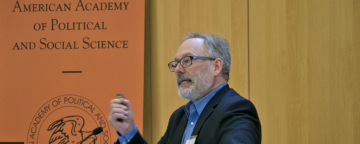
Social science scholars gathered at the Annenberg Public Policy Center for a two-day conference co-sponsored by the American Academy of Political and Social Science to explore "the new rural-urban interface."
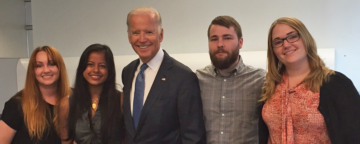
Vice President Joe Biden toured the Annenberg Public Policy Center on Monday and met with some of the policy center's postdoctoral fellows in the Science of Science Communication.

In an op-ed in the Washington Post, Kathleen Hall Jamieson said debates were an essential way for voters to learn about the presidential candidates, and that Donald Trump should participate in all three debates against Hillary Clinton.
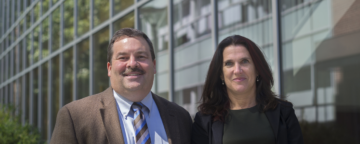
Dominique Brossard, from the University of Wisconsin-Madison, and William K. Hallman, from Rutgers University, have joined APPC as visiting scholars in the Science of Science Communication.
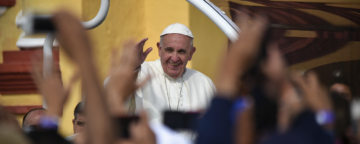
Annenberg Public Policy Center postdoctoral fellow Asheley R. Landrum will discuss her research at a workshop next month in Potsdam, Germany, on the papal encyclical on climate change.

Washington Post Executive Editor Marty Baron will talk about the media and policy change with APPC Director Kathleen Hall Jamieson in an event sponsored by the Fels Institute of Government.
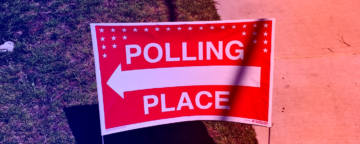
How do swing voters view the presidential candidates and the state of the nation? On August 25, pollster Peter Hart will find out in a focus group with swing voters in Milwaukee, on behalf of APPC.

APPC director Kathleen Hall Jamieson addressed the annual meeting of the Midwestern Legislative Conference, in Milwaukee, on "Effective Communication in a Polarized Environment."
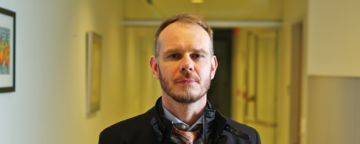
APPC visiting scholar Dietram A. Scheufele will deliver the opening keynote address, on communicating science in a polarized environment, at the North American Congress for Conservation Biology in Madison, Wis.